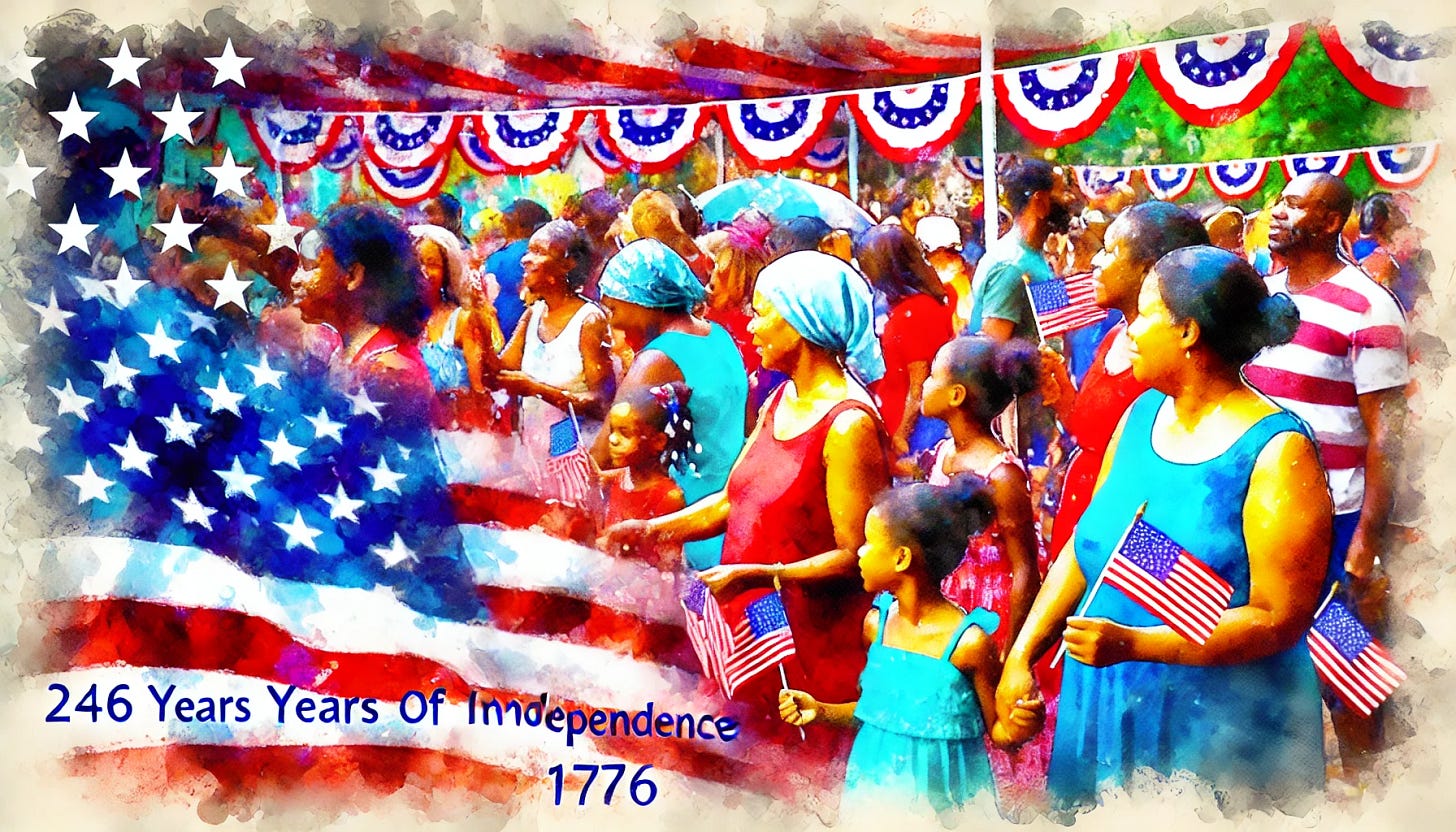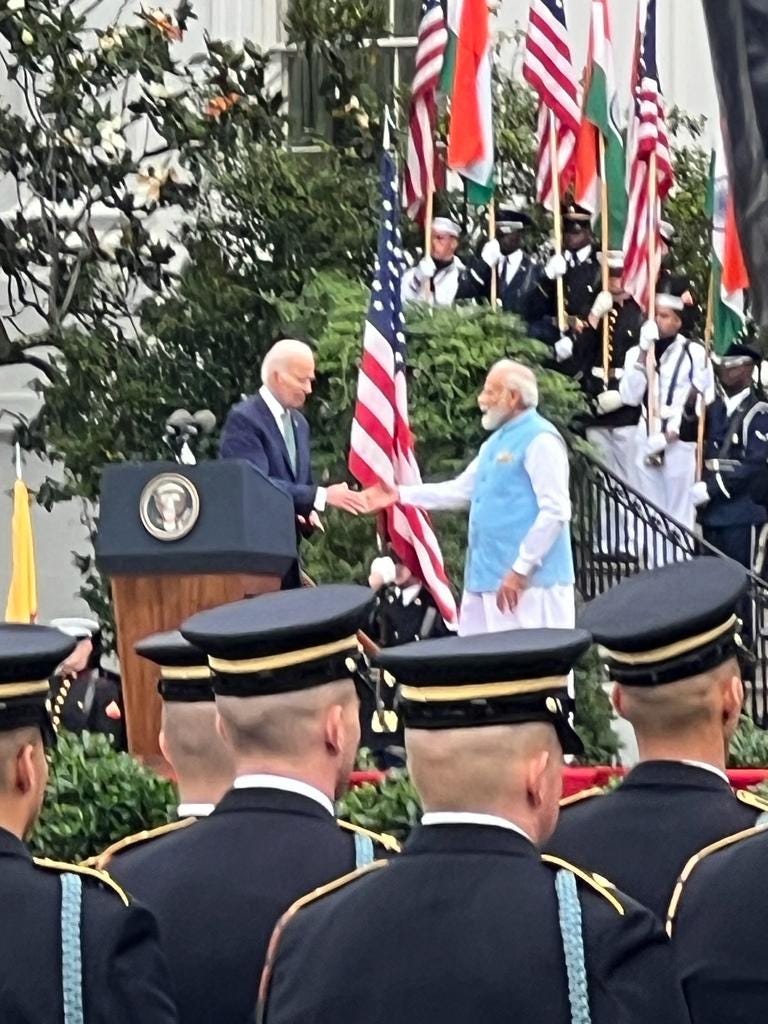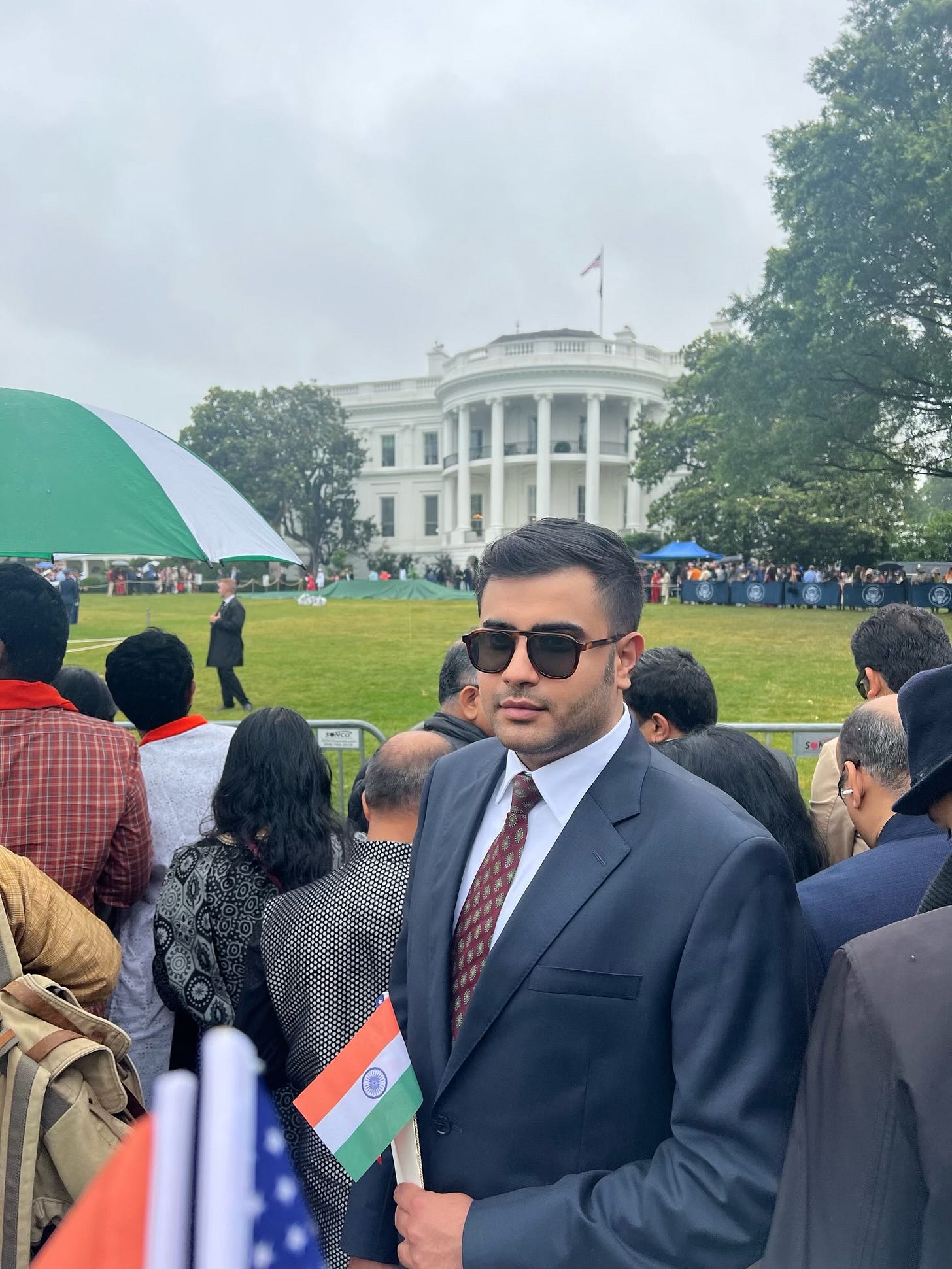Birth of a Nation: Celebrating the American Independence
Heartiest felicitations on the Fourth of July, the American Independence Day.
Karan Bir Singh Sidhu
Retired IAS officer with over four decades of public service, former Special Chief Secretary, Punjab, and alumnus of the University of Manchester (MA Economics). He writes on international affairs, governance, and the evolving idea of nations and nationhood.
Felicitations on American Independence Day
On the occasion of American Independence Day, 4th July, we extend our heartfelt felicitations to the people of the United States, in particular people of Indian origin. As we commemorate this significant day, we reflect on the enduring legacy of the American Revolution and the profound impact it has had on shaping democratic values worldwide.
The Road to Independence Via Revolution
The American Revolution was born out of growing discontent with British colonial rule in the 13 colonies. A key rallying cry was "No Taxation Without Representation" - the colonists resented being taxed by the British Parliament without having elected representatives.
Tensions boiled over with the Boston Tea Party in 1773, where patriots dumped British tea into the harbour to protest taxes. The British responded by closing the port of Boston and stationing troops. Skirmishes broke out, and the "shot heard round the world" was fired in Lexington and Concord, Massachusetts in April 1775, marking the start of the Revolutionary War.
July 4, 1776: Declaring Independence
On July 4, 1776, the Second Continental Congress adopted the Declaration of Independence in Philadelphia, Pennsylvania. Written primarily by Thomas Jefferson, it proclaimed the 13 colonies were now independent sovereign states, no longer under British rule.
56 delegates signed the Declaration, including John Hancock, John Adams, Thomas Jefferson, Benjamin Franklin, and representatives from all 13 colonies. Interestingly, Rhode Island, the smallest colony, was the first to declare independence from Britain two months earlier in May 1776.
Recognition by Great Britain
The struggle for American independence culminated in the Treaty of Paris, signed on September 3, 1783, which formally ended the Revolutionary War. This treaty marked the official recognition of the United States as an independent nation by Great Britain. Negotiated by American diplomats Benjamin Franklin, John Adams, and John Jay, the treaty established boundaries between the United States and British North America, and granted Americans fishing rights off the coast of Newfoundland.
Alliances with Continental Europe
Following this recognition, the United States began to forge alliances with various European powers. The Franco-American Alliance of 1778, established during the war, played a crucial role in securing French military support, which was instrumental in the American victory. In the years that followed, diplomatic relations with other nations, such as Spain and the Netherlands, further solidified America's position on the global stage.
Forging a New Government
After winning the war, the Founding Fathers set about creating a government for their new nation. George Washington presided over the Constitutional Convention in 1787 to draft the U.S. Constitution.
Key framers like James Madison and Alexander Hamilton vigorously debated how to balance power between the federal and state governments. The Constitution was ratified in 1788 and Washington was unanimously elected as the first U.S. President. The Bill of Rights was added in 1791 to guarantee individual liberties.
A Nation Divided and Reunited
However, the young nation would soon face its greatest test. Tensions between the industrialising North and the slave-holding agrarian South erupted into the American Civil War from 1861-1865.
After the Union victory, the United States entered a period of rapid economic growth and emerged as a world power by the early 20th century. Through two world wars, the civil rights movement, and the dawn of the information age, the nation continued to evolve while striving to uphold its founding ideals of liberty and justice for all.
249 Years of Independence
While Donald Trump's second presidency, his flamboyantly titled Big Beautiful Tax Bill, and his frequent spats with Elon Musk may dominate headlines for now, they are but fleeting flashes—temporary tremors in the vast chronicle of this great nation. In the grand sweep of American history, these episodes will likely be remembered as minor blips on the radar-scape of a republic nearing its quarter-millennium milestone.
As the United States marks 249 years of Independence this July 4th, the world reflects not merely on the events of the moment, but on the enduring ideals that birthed a nation. From thirteen struggling colonies on the Atlantic coast to a sprawling union of fifty states, America's journey has been one of extraordinary transformation. Its constitutional republic and resilient model of democratic self-governance continue to serve as a lighthouse to freedom-seeking peoples across the globe.
Though challenged time and again, the founding principles of liberty, justice, and equality still burn bright—offering hope not just to Americans, but to all of humanity. And in that light, the American Revolution remains not just an event of the past, but a living legacy of what is possible.
To all our American friends, Happy 4th of July!
If you believe this article would interest someone you know, please feel free to share it anonymously (for us), using any platform that you prefer.









Thanks for your wonderful response, Sir🙏🙏🙏
Thanks for bringing out this beautiful piece of information about the Land of Opportunities on its Birth Anniversary. Being naturalized US Citizens, I and my entire family are proud to be a part of it. But our Indian roots are still intact. And we love our Bharat Desh Mahaan, literally❤️🎈